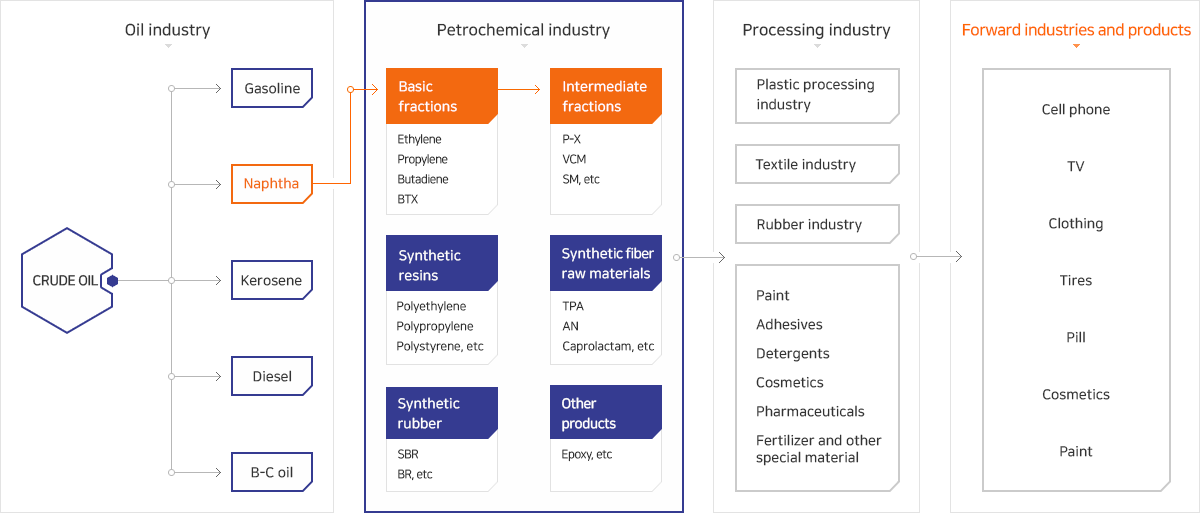Petrochemical Industry
What is Petrochemical industry?
The process of manufacturing cracking petroleum products (naphtha, etc.) or natural gas to make basic petrochemical feedstock (ethylene, propylene, butadiene, benzene, toluene, xylene, etc.) and the process of producing synthetic resins (plastic), synthetic fiber (polyester and nylon) feedstock, synthetic rubber, etc. are collectively falls into the petrochemical industry.

It is a basic materials industry
The petrochemical industry is the basic materials industry that supplies materials essential to everyday life, such as automobiles, construction, electronics, fiber, household goods, fertilizers, agricultural chemicals, cosmetics and detergents, and basic materials for cutting-edge industries such as life science, information & communication, and aerospace.
It is a process industry that requires complexes and integration
Based on the naphtha cracking centers producing basic fractions, plants producing related derivatives are integrated and form a complex. It is a typical kombinat (combine)-type industry. It is a capital-intensive process industry, requiring large-scale capital investments
It is a globalized general-purpose industry
As the technology is widely used, there is not much difference in the quality of products, and prices vary greatly depending on supply and demand. As far as petrochemical complexes in Korea are concerned, the Ulsan petrochemical industrial complex was completed at the end of 1972, the Yeosu petrochemical industrial complex at the end of 1979, and the Daesan petrochemical industrial complex began production in 1991.
Petrochemical
Industry value
-
Empowering the next generation high tech industry

-
Creating high added value(10~100 times)

-
Indispensable industry for the community
70% of our body is water, 70% of personal items are petrochemical
-
Petrochemicals contribute to the preservation of natural resources and protection of the environment
